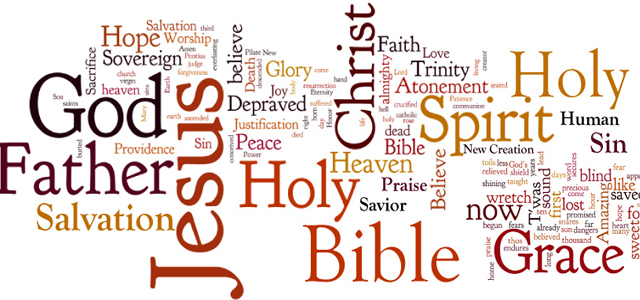The early church had to define its beliefs and commitments against the hugely popular cultural phenomenon known as gnosticism. Gnosticism was part of a wider cultural mood of pessimism and despair. It viewed the physical world as inherently evil, and it viewed salvation as a spiritual escape from the world of the flesh.
Marcion was one of the most successful gnostic teachers. He said the material universe had been created by a god who was both wicked and incompetent. Marcion was especially disgusted by the human body; “flesh stuffed with dung” as he called it. Like most gnostics, he was horrified by sex. He viewed sexual procreation as monstrously wicked. Marcion’s followers had to base their lives on an austere renunciation of sex, marriage, family, and child-rearing. Natural bonds were dissolved; only spiritual bonds were of any value.
The baptismal confession of the Apostles’ Creed was a response to such world-denying doctrines. Right from the start, Christians expressed a profound commitment to creation. The Gospel of John begins by retelling Israel’s creation story: “In the beginning…” (Genesis 1; John 1). Christians believed that in Christ they had encountered the beginning — the very source and energy of creation. They had come to know the one through whom “all things were made” (John 1:3; also see Colossians 1:15-17). Looking into the face of Christ, they had seen the blueprint of reality, an outline of God’s good plan for the whole creation.
To be baptised into this world-affirming faith was a countercultural thing. In confessing the Apostles’ Creed, Christians refused to see anything in the world as inherently evil. Rather, they claimed that everything in this world had been made by the good and wise God, whom they had come to know in Jesus Christ.
To say the three great “I believes” of the Creed is to confess our personal allegiance to the God revealed in Christ. But in confessing the Creed, we also enter into solidarity with the created world. Each of the three parts of the Creed makes a particular claim about creation. In the first part, we confess that everything in this world is the handiwork of a good God. In the second part, we confess that this good God has entered into the very stuff of creation in the person of Jesus. And in the third part of the Creed, we confess that this created world is being renewed by the Holy Spirit, and will one day be transfigured in the “resurrection of the body and the life everlasting.”
For Christians, salvation is the glorification of physical reality, not an escape from it.
Today it’s often said that creeds are narrow and intolerant. But historically it was exactly the opposite. It was the Christian creed that took a stand on behalf of creation. It was the creed that said “No!” to any doctrine that condemns creation as evil, or that disparages the human body as evil, or that elevates the divine nature as somehow too pure to make contact with our ordinary flesh-and-blood world.
Right from the start, the Christian creed was intolerant of intolerance. In saying “No” to gnosticism, the church said a resounding “Yes” to the whole material universe.
Dr Ben Myers is Lecturer in Systematic Theology at United Theological College













